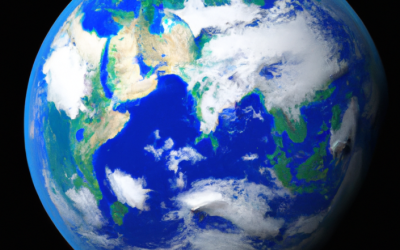A second term for Barack means more extreme policies for Canada
After avoiding direct discussion about climate change during the election, President Barack Obama indicated in his victory speech on Wednesday that he won’t ignore the topic any longer. He said:
“We want our children to live in an America…that isn’t threatened by the destructive power of a warming planet.”
After prolonged applause, he continued,
“We want to pass on a country that’s safe…”
Of course, neither the United States of America, nor Canada, nor any other country, is unsafe, or in any serious way threatened, due to global warming. But this will not stop eco-zealots in the Obama administration from pursuing policies that are based on the idea that dangerous climate change is being caused by our carbon dioxide (CO2) and other greenhouse gas (GHG) emissions. As was the case in their first term, administration officials won’t even consider the possibility that simple adaptation is far more effective and less costly than restructuring an entire country’s energy infrastructure to lessen CO2 emissions.
So, in Obama’s second four years, we are likely to get more of what we saw the first time around. Only this time, it will almost certainly be more severe since the President will not have to face the electorate again. In “An Invigorated Second Term,” The New York Times suggested Obama “knows he has an opportunity to address climate change with more vigor, going beyond auto-mileage standards and renewable-energy jobs to possibly advocating tougher carbon emissions standards.”
This would have severe consequences not just for Americans. The government of Prime Minister Stephen Harper has indicated that Canada will follow the U.S. lead on climate change:
- Our Copenhagen Accord and Durban Agreements GHG targets are the same as the Americans (17% below 2005 levels by 2020).
- Canada will enable those GHG targets if the U.S. does, and will not, if the U.S. does not.
- Both Canada and the United States (and all western nations, for that matter) are pushing for the development of worldwide, legally-binding GHG targets, based on Copenhagen and Durban, to be agreed upon by 2015, to start in 2020. Neither Canadian nor American governments seem concerned that any agreement based on Copenhagen or Durban will effectively be another Kyoto Protocol, with most developing countries exempted from having to make any emission cuts at all.
- The Canadian Liberal government of Paul Martin added CO2 to the list of toxic substances under the Canadian Environmental Protection Act (see #74 on the Toxic Substances List). The current Conservative Government has not removed CO2 from the list. Consequently, this listing constitutes the legal basis for the Canadian government’s decision to impose CO2 regulations on a sector by sector basis across the country.
- Similarly, U.S. courts decided that the Environmental Protection Agency has an obligation to control CO2 emissions under the Clean Air Act and this is exactly what the agency is now doing. So the governments of both Canada and the United States are using a scientifically-flawed labeling of CO2 to enable economically damaging and environmentally useless regulations against CO2.
- The Canadian government allocates massive funding to “carbon” sequestration projects, just like in America
- Canada gives huge financial breaks to alternative energy sources, just as in the U.S.
- Canada generally follows the U.S. lead on auto-mileage standards.
If the U.S. Congress eventually enables a national carbon tax or trading regime, expect the Canadian government to follow.
In many ways, Canada’s climate policy is determined in Washington, D.C. We had no vote in the U.S. election, of course, but its impacts will be felt by Canadians from coast to coast to coast.
In coming FCPP blog posts, I will examine the growing regulatory storm in more detail.
_______________
Tom Harris is Executive Director of the International Climate Science Coalition – http://www.climatescienceinternational.org/ and a Research Fellow to the Frontier Centre for Public Policy in Winnipeg, Manitoba, Canada.


